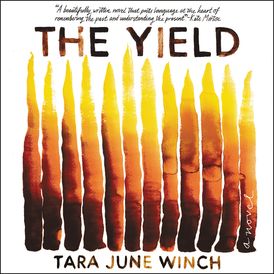
The third voice is that of a (misguided) missionary who came to build a ‘place that is good’ but laid the foundation for the destruction of Poppy and August’s people instead. Poppy’s granddaughter who returns home from England at the time of his death and finds herself continuing what he began.


Then there is the protagonist August (short for Augustine). First is the voice of Albert ‘Poppy’ Gondiwindi – the grandfather, the elder, the linguist – whose chapters serve as an annotated dictionary of the Wiradjuri language, flowing water-like as the plot thickens. There are three strains that twist and bend but carry through to the end and come together. To start, I noticed the (genius) structure in The Yield. Because the first marks the beginning and for Australia it starts with our First Nations people.īut I picked Tara June Winch’s third book The Yield off the shelf (passing other titles by Tony Birch and Bruce Pascoe) specifically because reading such a story is an education and I felt most at ease to seek in Winch – a female writer of my age – as my ‘writer-teacher’. Mood: Dreaming – reading through the past, present and future of Australia.įor my first review of 2021, the book had to be by an Aboriginal Australian author.

She is a masterful writer, telling us her family’s story with tenacity and tenderness in equal measures. Tara June Winch is a compatriot whose sharing of the songlines of the Wiradjuri people is an act of both generosity and survival.

Headlines: Reading this book is an experience that makes me feel more Australian. “This Korean Woman Reads” is a book review series by Anna Song, who will be writing for the site reviewing books written by BIPOC (Black, Indigenous, People of Colour) writers in Australia and from other parts of the world. Written By Guest Contributor “This Korean Woman Reads” – Anna Song


 0 kommentar(er)
0 kommentar(er)
